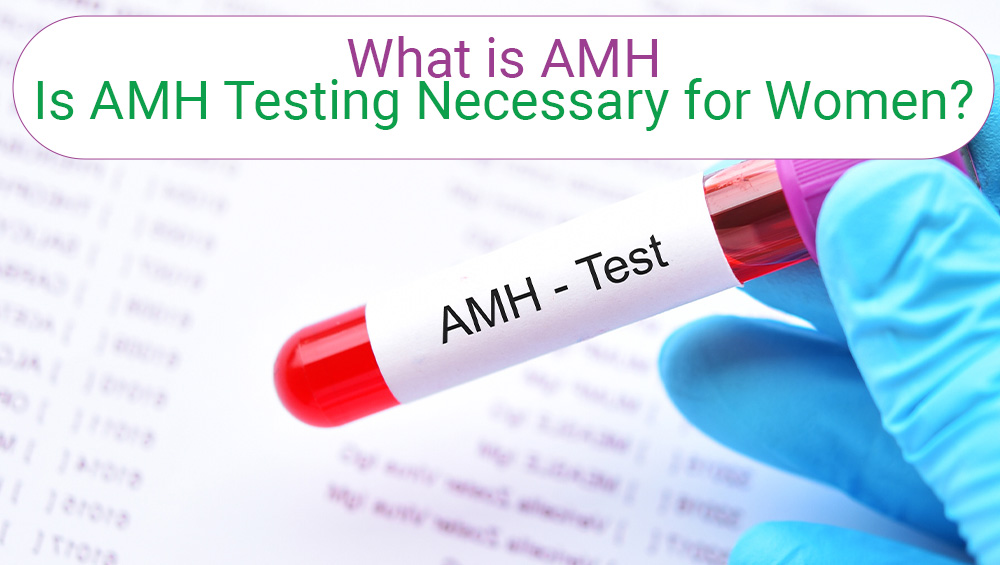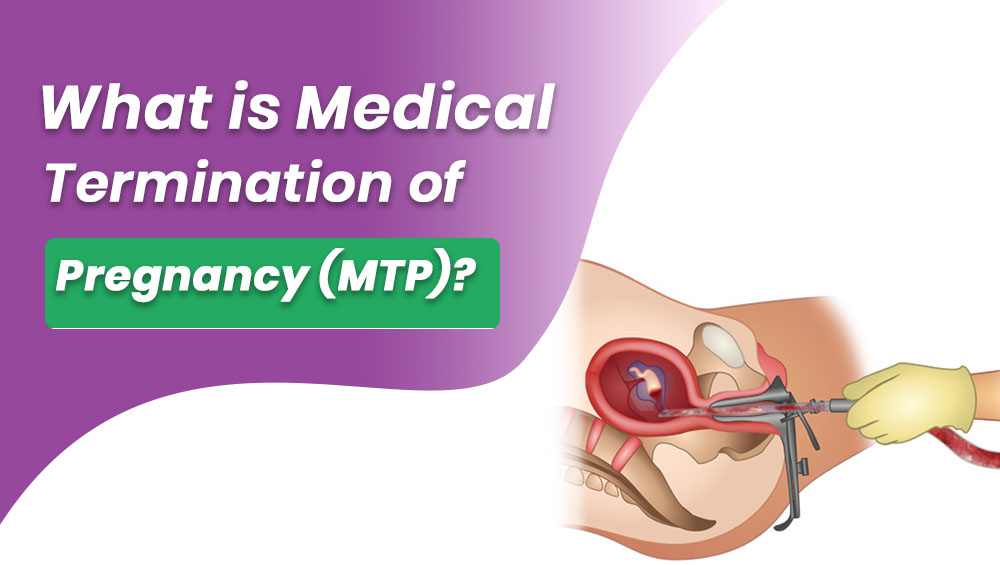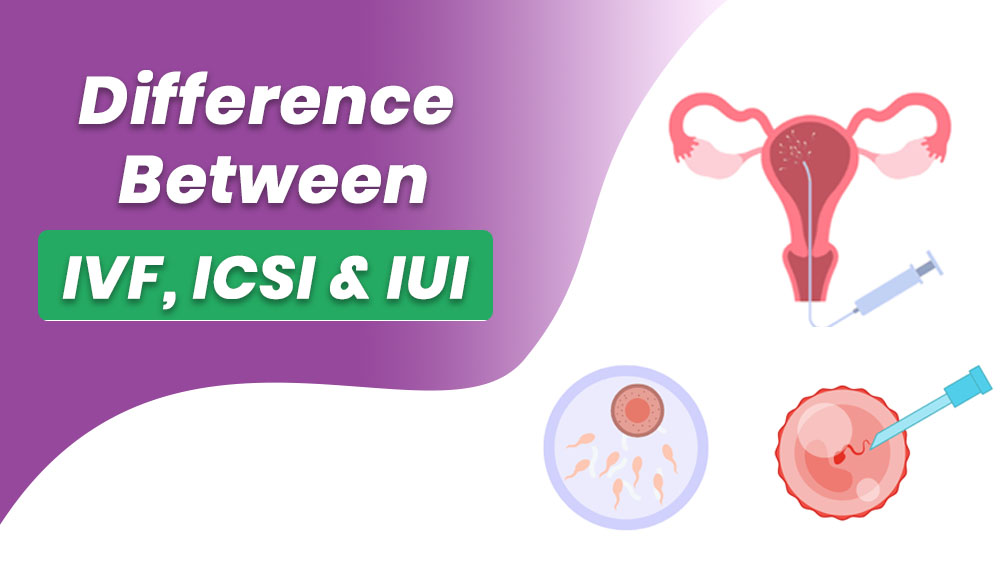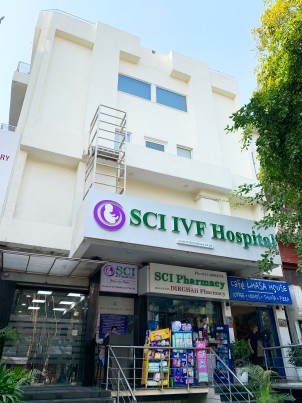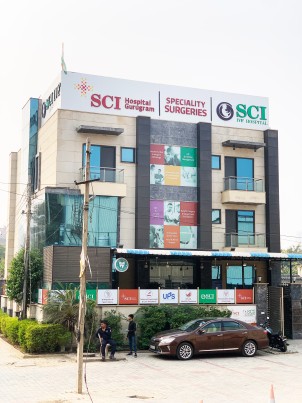What is AMH? Is AMH Testing Necessary for Women?
Every woman’s journey is different when it comes to fertility. Some may get pregnant naturally, while others may have to get some medical assistance to figure out their reproductive health. However, how does one figure out if they have a healthy number of eggs? That is where the AMH test comes into the picture. It is a straightforward blood test that holds the key to understanding a woman’s fertility potential and egg reserve.
In this blog, we will cover the meaning of AMH, how and when to get the test, what the results mean, and if every woman, particularly those looking to get fertility treatments like IVF, really needs to get this test.
What is AMH?
Anti-Müllerian hormone or AMH is generated by small follicles within a woman’s ovaries. This hormone indicates the number of eggs a woman has left or her ovarian reserve. Larger reserves tend to produce higher AMH levels, while lower levels indicate a higher potential for infertility. Yet, AMH is not the sole determinant of fertility and only indicates the level of ovarian functionality which helps your physician tailor your care.
What is an AMH Test?
An AMH test is a simple blood test that calculates the level of AMH in your blood as it aids your physician in determining the number of eggs in your ovaries and their potential for responding to fertility treatments. Doctors recommend this test for women who are attempting to get pregnant and planning to do so in the future or looking to do IVF. If you are asking that "AMH test: when to do?" most fertility specialists recommend this test before commencing any treatment or in the evaluation of your reproductive system.
How is the AMH Test Done?
The AMH test is safe, non-invasive and takes very little time to complete. The test only requires a little blood from your arm which is sent to a lab for analysis. Unlike most hormonal tests, you can get your AMH levels assessed any day of your menstrual cycle.
The results usually come back in a few days and provide your fertility doctor with a preliminary understanding of your fertility by assessing your remaining eggs, which helps him/her determine the next steps in your fertility journey.
Understanding AMH Levels
AMH levels are given in nanograms per millilitre (ng/mL).
- Normal range: 1.5 to 4 ng/mL
- Low AMH: Below 1.5 ng/mL (indicating a lower egg reserve)
- High AMH: Above 4 ng/mL (sometimes seen in conditions like PCOS)
AMH levels do vary from laboratory to laboratory. A low AMH level doesn’t mean that a pregnancy will be impossible and a high AMH level doesn’t mean that a pregnancy will be successful. Other factors are egg quality, age and general health.
Why is the AMH Test Important in IVF?
During IVF, AMH is needed to construct a stimulation protocol. It enables the determination of the approximate response of the ovaries and the possible retrieval of eggs. At SCI IVF – Best IVF Treatment in Delhi, doctors consider AMH results in customizing treatment plans to each patient. Knowing your AMH also alleviates the risk of overstimulating or understimulating the patient and helps the IVF process become safer.
Is AMH Testing Necessary for Every Woman?
Not necessarily as for women 30 years and older, women who have problems with fertility and women who want to preserve their fertility by freezing their eggs, AMH testing is the most useful. It facilitates timely decisions regarding reproduction. In contrast, a young woman with a regular menstrual cycle without any fertility problems probably does not need the test. Moreover, the sight of a lower number can pose unnecessary stress. It is always advisable to discuss any fertility goals with a specialist.
What if AMH Levels are Low?
There’s no reason to be discouraged if you have a low AMH level. Many women with this condition have low AMH success stories whether it be natural conception or other assisted reproduction methods. Depending on your specific condition, your fertility doctor might recommend egg freezing, ovarian stimulation or even IVF. Advanced fertility solutions, considering SCI IVF tailored to your AMH and general health will make certain that every patient receives the optimal level of care.
Conclusion
Taking AMH levels gives you the option of controlling the clock on your fertility health. It provides information on your egg reserve and helps your doctor figure out the best course of action to take. AMH is only one piece of the broader fertility puzzle and one of the other important pieces includes age, which directly influences egg quality, lifestyle and overall reproductive health.
If you have specific fertility problems and are considering egg freezing or if you are planning a pregnancy, reach out to SCI IVF, which is the best IVF centre in Delhi most expertise in the field, you will receive top quality guidance and fertility care.
Take the first important step on your journey to parenthood with confidence and optimal medical care.
